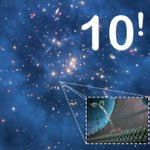 Occam's razor favors simple explanations over complex ones, specifically, minimizing the number of assumptions necessary to explain a phenomenon. A catch is that when comparing the complexity of explanations, there might not be an obvious measure. What looks simple to some (God did it) might look complex to others (Which God? Where From? How?), and vice versa, i.e. what might look complex to some (details of adaptation, "irreducible complexity", chicken-and-egg, etc.) is in fact simple to explain for those in the know (e.g. those who understand how evolution through natural selection works). So while objectively natural explanations trump supernatural ones every time, very much in line with Occam's razor, the perceived complexity by individuals might yield a non-parsimonious outcome ("God did it") that's considered simple by the individual.
Occam's razor favors simple explanations over complex ones, specifically, minimizing the number of assumptions necessary to explain a phenomenon. A catch is that when comparing the complexity of explanations, there might not be an obvious measure. What looks simple to some (God did it) might look complex to others (Which God? Where From? How?), and vice versa, i.e. what might look complex to some (details of adaptation, "irreducible complexity", chicken-and-egg, etc.) is in fact simple to explain for those in the know (e.g. those who understand how evolution through natural selection works). So while objectively natural explanations trump supernatural ones every time, very much in line with Occam's razor, the perceived complexity by individuals might yield a non-parsimonious outcome ("God did it") that's considered simple by the individual.I was reminded of this when reading Jürgen Schmidhuber's Simple Algorithmic Principles of Discovery, Subjective Beauty, Selective Attention, Curiosity & Creativity:
According to our complexity-based theory of beauty [15, 17, 25], the agent's currently achieved compression performance corresponds to subjectively perceived beauty: among several sub-patterns classified as 'comparable' by a given observer, the subjectively most beautiful is the one with the simplest (shortest) description, given the observer's particular method for encoding and memorizing it.
Similarly, from the abstract:
I postulate that human or other intelligent agents function or should function as follows. They store all sensory observations as they come - the data is holy. At any time, given some agent's current coding capabilities, part of the data is compressible by a short and hopefully fast program / description / explanation / world model. In the agent's subjective eyes, such data is more regular and more "beautiful" than other data. It is well-known that knowledge of regularity and repeatability may improve the agent's ability to plan actions leading to external rewards. In absence of such rewards, however, known beauty is boring. Then "interestingness" becomes the first derivative of subjective beauty: as the learning agent improves its compression algorithm, formerly apparently random data parts become subjectively more regular and beautiful.
Science v.s. Religion, knowing to the best of our abilities v.s. believing against all reason: Which one thrives as we increase our knowledge and understanding of the world, and which one tries to preserve the "old ways" and needs "patching up" as real-word observations shake the man-made self-delusion?

No comments:
Post a Comment